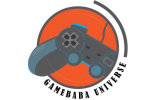When the National Center for Gaming Disorders (NCGD) was built, the estimate was that the center would attend to 50 people annually. However, since the end of March 2023, the specialist center in London has been treating 30 people on average—seven times more than anticipated. The major culprit is loot boxes.

Experts are warning of the astronomic rise in video game addiction with over 850 people already referred to the London clinic. They also believe more need to be done to tackle the gambling-style loot boxes present in mobile and console games.
Around one-third of gamers being treated for addiction in the London center said they spent real money on loot boxes, a gambling-style feature that promises randomized rewards like character cosmetics or weapons that cannot be “re-exchanged” for cash legitimately.
ALSO READ: Role Of Video Games In Child Behavior Revived After Atlanta Mother Shot Her Teenage Son
Experts say loot boxes are becoming lucrative for video game studios while also normalizing gambling behaviors in young people. Some games were fingered more than others by patients being treated for addiction.
During a 2021 and 2022 analysis, about 12% of patients being treated for video game addiction fingered Fortnite as the cause of their compulsive video gaming. Another 10% mentioned Minecraft, 8% said it was Call of Duty, and 4.7% admitted to using Roblox, a gaming platform.
More than 50% of the people the clinic has helped so far are children and their family members including parents. Out of the 855 people referred to the clinic, 408 were gamers while 227 of the gamers were under 18 years.
Loot boxes have become a long-term cash cow in the gaming industry

Video games—especially AAA games—are expensive to develop. Their development period often spans 2 to 4 years and costs the studio over $200 million. Therefore, besides hoping to sell millions of copies on launch weekend, developers often rely on loot boxes to recoup their expenditure over a long period of time or to raise funds for their next project.
“The monetization of gaming through loot box purchases and the advertising of such gambling-like features in games is normalizing gambling behaviors in young people,” said the founder and director of the NCGD, Prof Henrietta Bowden-Jones. “We need reassurance that protective regulation of these products will be implemented. We must take online harms seriously.”
Loot boxes are becoming a popular sight in the gaming industry. It is often used to encourage gamers to pre-order the games before the launch date. For example, Avatar: Frontiers of Pandora has lots of juicy promises for gamers who pre-order the game.
However, loot boxes come in other forms including “player packs” seen in the EA Sports football series where gamers are offered a random selection of footballers. Gamers can spend as high as $115 for bundles of points used eventually for the purchase of packs.
Experts estimate that the revenue generated through loot boxes in the gaming industry is expected to hit $20 billion annually by 2025. Australia, Belgium, Spain, and the Netherlands have either categorized loot boxes as gambling or already working towards doing so, but the UK is still lagging behind.
In 2022, Nadine Dorries, the then UK culture secretary, rejected calls to tag loot boxes as gambling products. Dorries defended her opinion by saying the gaming industry was capable of self-regulation. She also said that although research has revealed a correlation between loot boxes and gambling addiction, it wasn’t clear if the link was causative.
Apps with gambling-style loot boxes are invading mobile app stores

Loot boxes are becoming an inescapable feature in mobile games too. Android and iOS users are increasingly getting games with gambling-style mechanics like slot machines.
A Ph.D. fellow at the IT University of Copenhagen and an expert in loot boxes Leon Xiao mentioned that there was some form of standard about loot boxes in games like developers being required to publish information about winning probabilities on a slot machine spin. However, this informal regulation is often ignored.
ALSO READ: Gaming Disorder Surges Among Children As Young As 13 NHS Confirms
“Apple says if you want to upload your game to the Apple Store, you need to make disclosures about the probability of randomized features,” Xiao said. “We checked in 2021 and a third of companies were not doing it. Existing regulation is not being enforced.”
One of the reasons why there has been no clampdown on loot boxes is that the returns cannot be exchanged for real money. The Gambling Commission has previously moved against third-party firms that allowed gamers to sell digital items for cash or use them as bet currencies. However, Mills believes the idea was outdated and that younger people value in-game items differently now.
The Guardian also reported on how mobile game makers are using techniques similar to what bookmakers do with slot machines to feed gaming addiction and attract big spenders—some of whom have blown their life savings over a short time.
“Safe In Our World” running to the rescue

A new interactive journal was released by Safe In Our World, a video game mental health charity, called Sidekick. The essence of the journal is to help gamers to track their mental health and take up self-care. The developers want the journal to be “a physical resource for mental well-being”.
It has 140 pages of several free journaling pages and “games-themed activities and prompts, designed to be a low-pressure way to get people thinking about their mental health”.
ALSO READ: Video Games Are Not The Cause Of Violent Behaviors… These Are
Partnerships and training manager at Safe In Our World Sky Tunley-Stainton said, “Gaming can be a positive outlet for so many individuals, but things like exposure to online harassment and harmful conduct in gaming spaces can also have a negative impact on people’s mental health”.
A 2021 survey showed that 1 in 5 gamers reported feeling upset or uncomfortable after playing. At least 1 in 7 felt alone or isolated, while 1 in 10 had suicidal or depressive thoughts. The mental health charity hopes that the journal will provide advice and resources that will help gamers to manage their well-being.
“By connecting people with the games they love, we hope Sidekick will feel like a familiar friend for folks in the games community who might be in need of the tools and information within to support their mental health,” said Tunley-Stainton. Sidekick can be purchased for $20 from Peregrine Coast Press.
Have you ever had to deal with gaming addiction? How did you overcome it? Feel free to share your thoughts with us in the comment box below.
Remember to share and bookmark this website to stay up to date on all the hottest news in the gaming industry.



